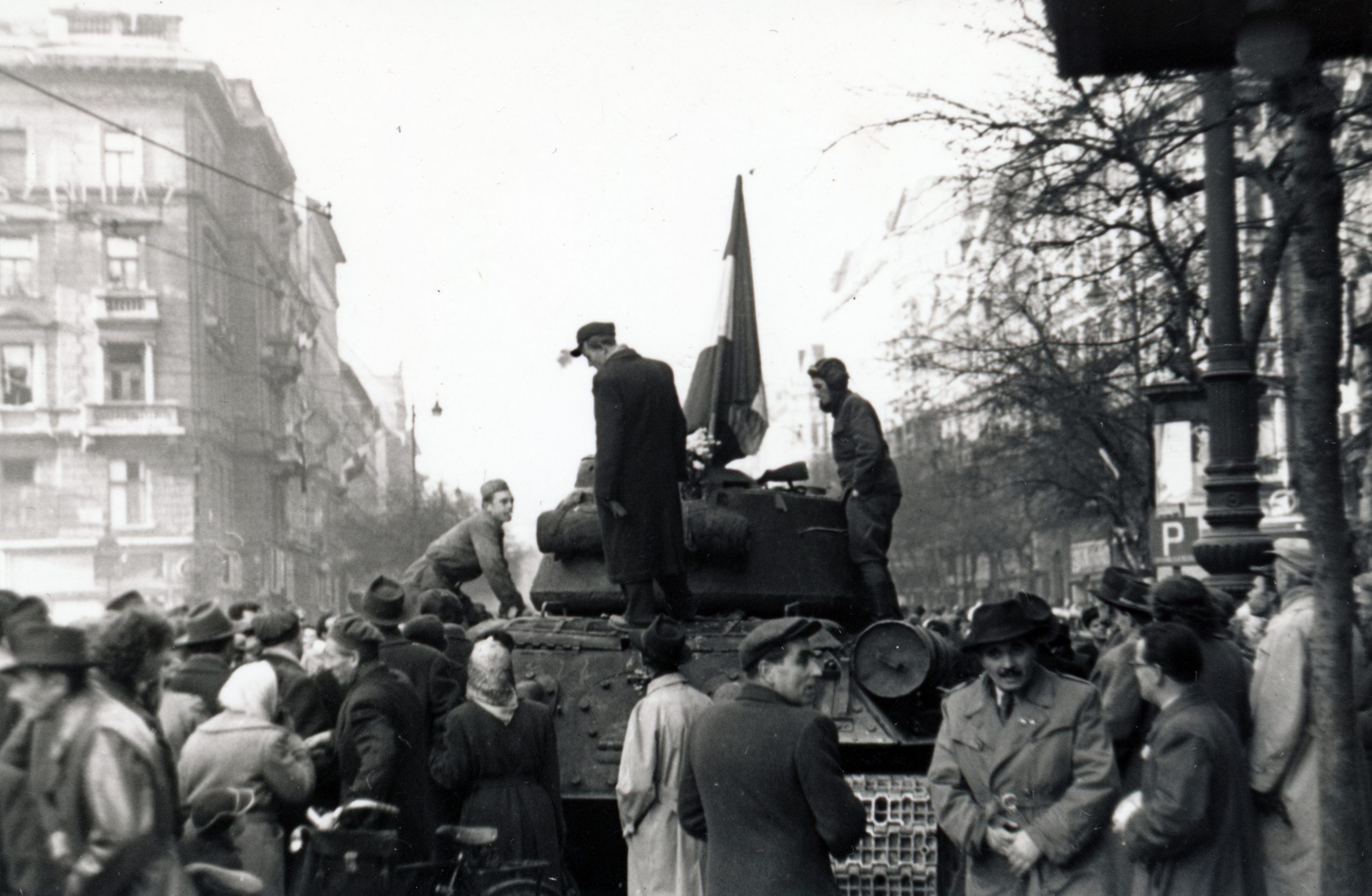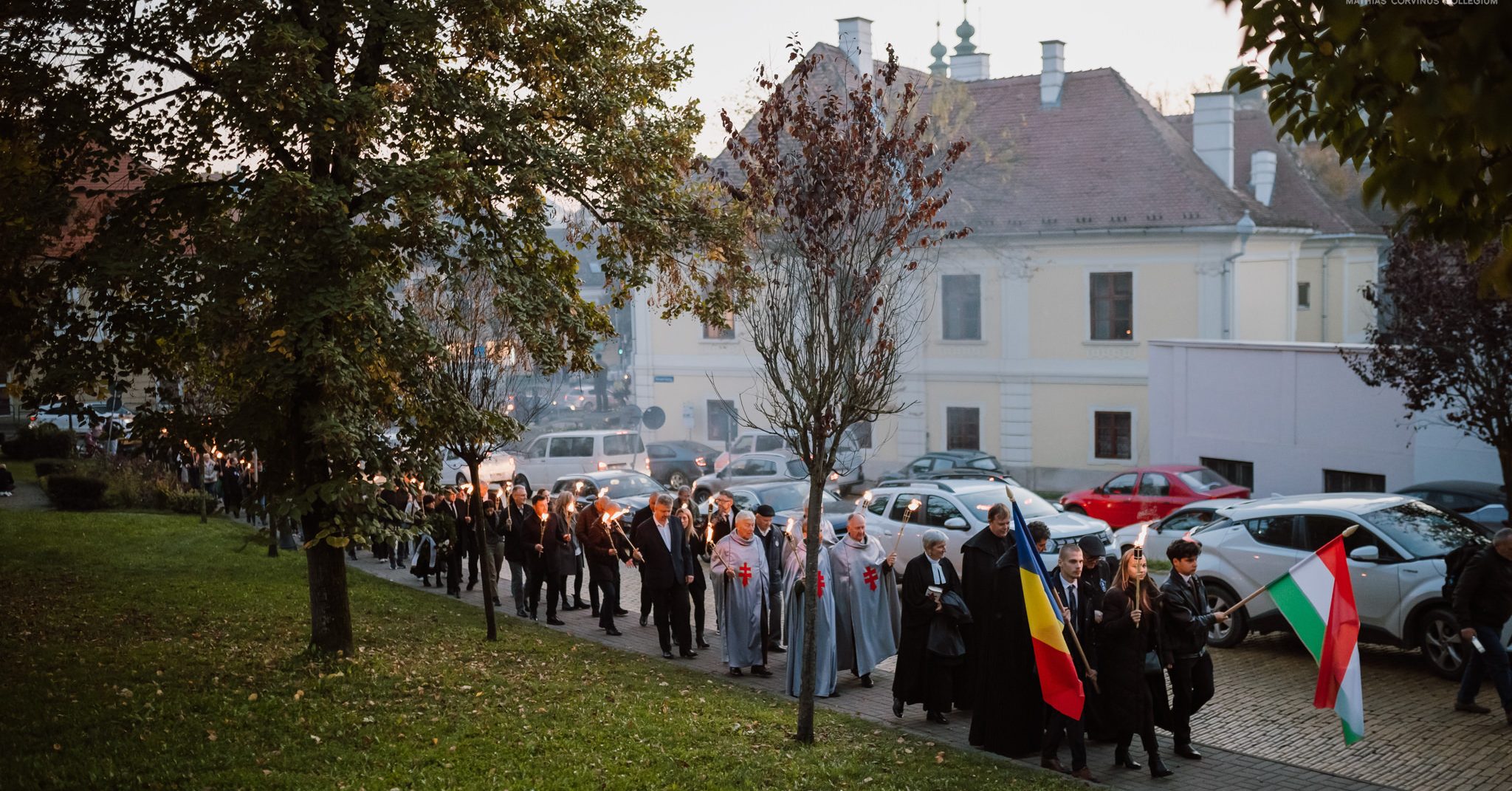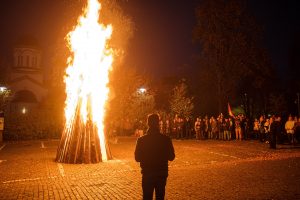
On Wedneday, Prime Minister Viktor Orbán will give a speech at 11 a.m. to commemorate the events of 1956.Continue reading

“The intellectuals of Transylvania must unite and stand up for the nation, for the survival of the Hungarians living here, for their prosperity in their homeland,” said Katalin Szili on Sunday in Acas (Ákos, in Romania), where a memorial plaque was placed on the wall of the Reformed congregation house in honor of István Dobai, an international lawyer and 1956 convict, who was born 100 years ago.
The Prime Minister’s chief adviser said that this was exemplified by the life of István Dobai, who was imprisoned for urging a solution to the Transylvanian issue in a memorandum to the United Nations. Katalin Szili stressed that the sacrifices of István Dobai and the other Transylvanian ’56 heroes tried by the Romanian communist regime for treason were not in vain. The love of nation and responsibility that Hungary has shown since 2010 towards its fellow citizens living in the Carpathian Basin or in the diaspora, is inspired by their example and the spiritual heritage of the Hungarian freedom struggle, she said.
Szili underlined that
the continuation of Dobai’s efforts for the solution of the fate of the Hungarians in Transylvania today means the demand for autonomy.
“In the European Union, it is loudly proclaimed that an important value of a democratic Europe is the self-governance of communities, that is, the possibility for communities to decide their own destiny. They call it subsidiarity. For us it is simply the future. For us, and for the communities of Hungarians in Transylvania living in a bloc, the future is to be able to live, prosper, and thrive in their homeland.”
She recalled that the last Sunday in October is the day of Szekler autonomy, when bonfires signal to Europe and the world that this community wants to preserve its identity and culture and wants to represent its interests on its own.

Bonfire in Miercurea Ciuc (Csíkszereda) on Szekler Autonomy Day, October 27, 2024. Photo: MTI/Veres Nándor
In his speech, László Tőkés, President of the Hungarian National Council of Transylvania, stressed that however modest the act of erecting the memorial plaque, it is a real act of justice and reparation for Dobai, as he was the only Hungarian political prisoner in Romania who was never rehabilitated. “After seven years of imprisonment, from which he was released with a general pardon, he never applied for rehabilitation, as he did not wish to deny the charges against him.
And indeed, his being branded as a traitor is not a mortal offense in our eyes, but an imperishable merit, since he did nothing but stand up against the Romanian communist dictatorship and show solidarity with the Hungarian revolution and freedom fighters.
He did not need to be exonerated afterwards by the oppressive power, as justice was done for him by posterity,” said the President.
During the 1956 revolution, he drafted a memorandum addressed to the United Nations on the fair and peaceful resolution of the ‘Transylvanian issue’ – the Hungarian-Romanian relations. For this he was imprisoned in 1957, and sentenced to life imprisonment. The other eight defendants in the Dobai trial, who were involved in the preparation and dissemination of the memorandum, were sentenced to six to 25 years, or life imprisonment.
Dobai was released on general amnesty in 1964, and worked as an “unqualified” accountant in Cluj-Napoca until his retirement. From 1990 to 1994, he was the supreme curator of the Transylvanian Reformed Diocese. He published books on legal theory, nationality, and church law, was a member of the Hungarian Academy of Sciences (MTA), and was awarded the Knight’s Cross of the Order of Merit of Hungary in 2014. He died in 2021, at the age of 97.
Via MTI, Featured image: Facebook/Mathias Corvinus Collegium – Erdély